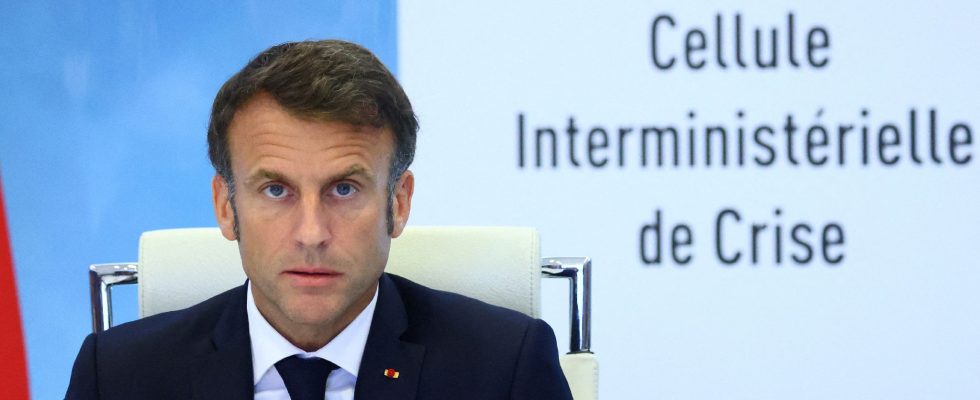When Emmanuel Macron wanted to close the parenthesis of the yellow vests with a televised address, on April 15, 2019, Notre-Dame burned and the plan planned by the executive went up in smoke. When the “hundred days of appeasement, unity, ambitions and actions” supposed to close the sequence of retreats are coming to an end, the whole country is set ablaze and the plans built to bounce back are put in place, if not in the trash, at least in the closet. As a symbol, the ecological planning council, which was to synthesize the progress of the past weeks, is sent back to better days.
In today’s France, the president is no longer the master of the clocks, Emmanuel Macron must manage an hourglass that runs out the useful time for him and a timer that counts down the time before the next explosion. In this race against time, it is not one anger that chases the other. “Anger, in the face of a job which, for too many French people, no longer allows them to live well, in the face of rising prices, refueling, shopping, the canteen, (…) this anger because some have the feeling to do their part, but without being rewarded for their efforts, neither in aid nor in effective public services”, to use the presidential words of April 17, does not disappear. Added to this is anger increased tenfold by the events of the past few days, from the fatal blunder of a police officer to the looting, and up to the ram attack on the home of Vincent Jeanbrun, the mayor of L’Haÿ-les -Roses.
Emmanuel Macron does not want to legislate in emotion. He first intends to know the profile of the 3,000 individuals placed in police custody, the several thousand rioters – 5,000 to 7,000 on the most threatening day, such a small number for such great violence -, to know if the criminal justice response shows up. He knows that his constituents, and the country as a whole, have shifted towards a desire for “more order, more firmness, more responsibility”. He is well aware, and the deputies of the majority with him, that it will not be easy to explain, in particular to traders who are victims of all-out attacks, that the country now needs a suburban plan as a priority. “The buildings that burned first are the very ones that received public investment,” notes Stéphane Séjourné, secretary general of Renaissance. 2023 is not 2005.
The time for decisions has not come
In speaking with the presidents of the Senate, Gérard Larcher, and of the National Assembly, Yaël Braun-Pivet, this Monday, July 3, the mayors attacked last Tuesday – his schedule was freed up due to the cancellation which he had to resolve on his state visit to Germany – Emmanuel Macron plays the institutions, while Elisabeth Borne receives the parliamentary groups. If the president received the party leaders, the time for decisions would have come, but this is not the case.
But already the seismic repercussions of this shock are perceived. A relative of Emmanuel Macron looked not once, but twice at Marine Le Pen’s statement on Friday June 30: it was not enough to detect the slightest fault. The silent RN campaign is going well, thank you for it. This dynamic will not encourage, according to the Macronist strategists, LR to tease the idea of a motion of censure in the fall, because a dissolution would put the right in great difficulty on the ground.
The fractures within the Nupes are also likely to increase. For the president, the danger is known, that of the ever greater discrepancy between words and reality – he who promised, for example, in his last solemn speech: “From the start of the school year, our school will change visibly.” The demand for order that is being expressed almost everywhere will not be satisfied by fine words.
